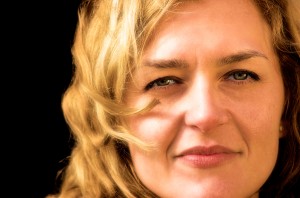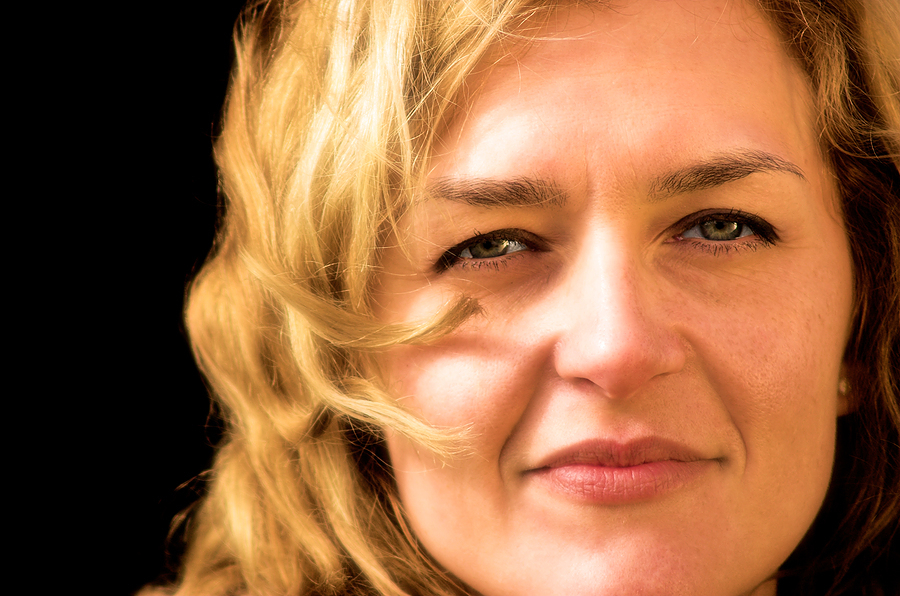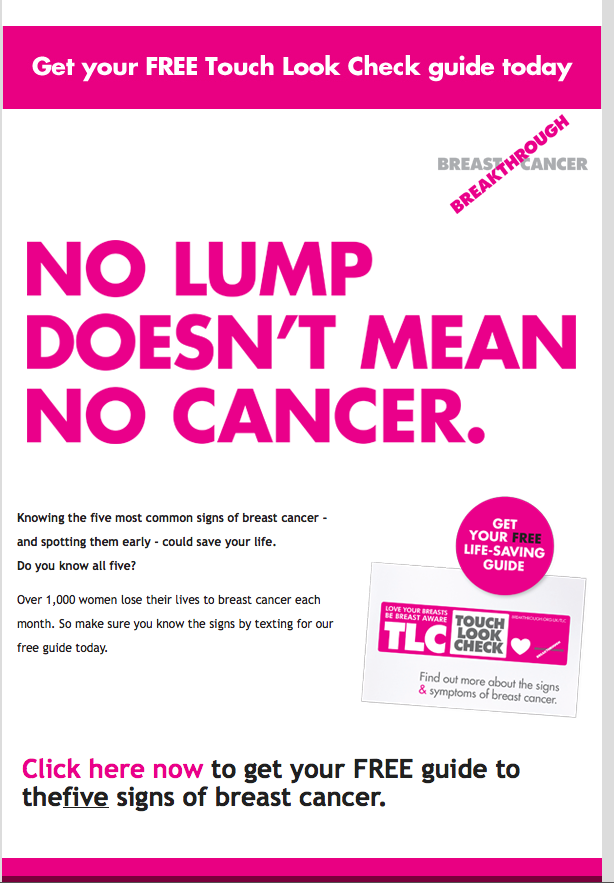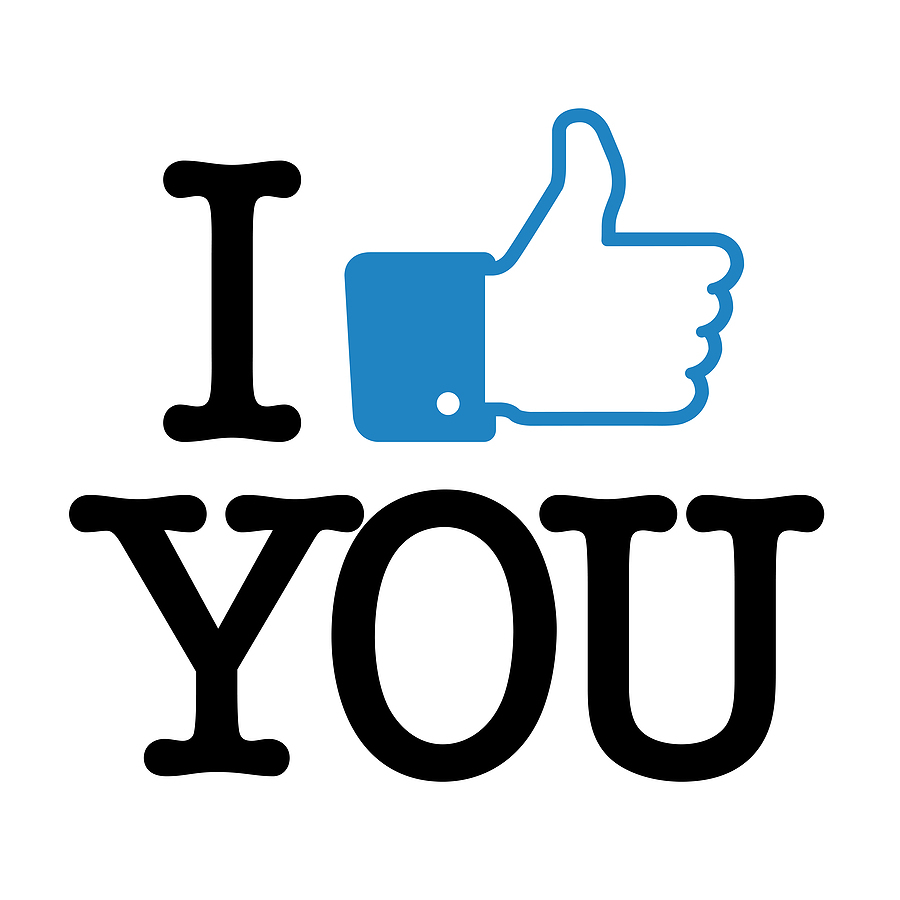In the summer I wrote an article about breast cancer screening – this is going along for a mammogram when you are healthy and have no symptoms (as opposed to having a mammogram to check out a suspicious lump.) It is offered to women from the age of 47 in the UK and the idea is that it will catch any cancer very early when it is hopefully more curable. 
However, although around 75 per cent of women will go for screening, very few actually realise the risks involved. Over the past few months the UK Government has been looking at the risks and harms associated with breast cancer screening…
The UK Government review has now reported back. It finds:
* The benefit of breast cancer screening is some women will have a breast cancer found at an early stage before symptoms appear and because it was found early their cancer will hopefully be treated successfully (finding it early is still no guarantee it will be cured.)
* The downsides are:
Overdiagnosis: For every 1300 cancers diagnosed via screening, 4000 women will be overdiagnosed. This means they will be treated with surgery and/or radiotherapy and/or chemotherapy and/or hormone treatment for a tiny slow growing ‘cancer’ that would not have caused any harm in their lifetime. To put this in perspective, you might think ‘better safe than sorry’ but having surgery and cancer treatment is potentially life-threatening in itself. Some women may die from treatment they did not need and this is why overdiagnosis is such a concern. And, despite what some charities claim, this overdiagnosis is ‘misdiagnosis’ because these ‘cancers’ that are found are not true ‘cancers’ that would ever kill you. Once you have been diagnosed with cancer, your life will change. You will be a ‘breast cancer’ patient – for example, there is always the worry it might return.
Women often say ‘screening saved my life’ but critics will ask how do they know it did? Unfortunately doctors cannot always tell from looking at breast cancers found during screening under the microscope which ones will progress and which ones will not. However, if a ‘cancer’ is found, it will be treated anyway. We have to add that what many women don’t realise is that doctors differ in their diagnosis – so two doctors looking at a cancer through a microscope might well disagree about how aggressive it is. Also radiographers might also disagree – so one radiographer might diagnose a cancer whilst another might think it is not something to be concerned about. This is the reality of science and why you should always seek a second or even third opinion.
X ray damage: For every 10,000 women that have regular screenings between the ages of 43 and 73, between three and six women will develop breast cancer caused by radiation from a mammogram.
Anxiety: One in 25 women will be called back for extra tests. These extra tests might mean further mammograms or a biopsy. Although 4 out of 5 of these women will not have cancer, being called back causes extreme worry and anxiety.
False negatives: The Review did not mention – although it is covered in all leaflets and cancer charity websites – that cancers can be missed. Some women have ‘dense breasts‘ which means mammograms will not spot their cancer. Other cancers cannot be spotted on a mammogram. Unfortunately, these are often the most aggressive kind. This is why even if you’ve had the all clear from a screening mammogram, you should still go back to your doctor if you find something unusual.
You can read more about the findings here: Cancer Research UK
Our Opinion
We feel it is a shame that despite admitting all these issues, cancer charities still ‘recommend’ screening. For some reason charities are very vocal – almost pressurising women into having screening. We believe screening should still be offered but it would be more ethical for them to present the facts and say it is up to the individual woman to decide whether to have screening or not. Women should be told it is fine to refuse a mammogram.
The problem with ‘recommending’ something is that many women just go along and do not question whether it is the right thing for them to do. If it were not ‘recommended’ it would encourage women to read up on the facts and decide for themselves.
The fact is there is a growing body of doctors that claim not going for breast screening at all is the best way to avoid becoming a breast cancer patient. They add that because treatment has improved so much for breast cancer finding breast cancer ‘early’ is less important than it used to be – and in fact if you find a lump yourself, you have as much chance as being successfully cured as if it were found during screening.
We recommend the best leaflet you can read is here: The Cochrane Review
Meanwhile, the Government is reviewing its own leaflet that accompanies breast screening appointments.
Should you have screening? Cancer Research UK says:
“After 20 years, out of 1,000 women who have screening, 75 will be diagnosed with breast cancer and have treatment. Out of these 75 women
16 will die from breast cancer
59 will be successfully treated and survive their breast cancer
Whereas, after 20 years, amongst 1,000 women who have not had screening, 58 will be diagnosed with breast cancer. Of these 58 women
21 will die from breast cancer
37 will be successfully treated and survive their breast cancer
So for every 1,000 women screened there are 5 lives saved at the expense of 17 women being diagnosed and treated for a cancer that would never have caused them any problem.
You can’t know whether you will benefit from screening or end up having treatment that you might never have needed. If you choose to be screened, you are accepting the chance of having your life extended, but also risking being overdiagnosed and having at least a lumpectomy or mastectomy, and possibly other cancer treatment. If you choose not to have screening, you run a slightly higher risk of dying because a breast cancer wasn’t found early enough.”
Meanwhile, talking on the BBC website, Dr Paul Pharoah, professor of cancer epidemiology in the departments of oncology and public health and primary care at the University of Cambridge says:
“For every breast cancer death that is prevented, three women will be diagnosed with a cancer that would never have become apparent in their lifetime.
These women will be treated unnecessarily for breast cancer and those treatments my result in harm.
For example, women who are screened are more likely to end up having a mastectomy than women who are not screened.
And some treatments, such as radiotherapy, will increase a woman’s chance of dying from something other than breast cancer.
Making a choice between these different harms and benefits is not easy.
Many women will decide that a small reduction in the chance of dying from breast cancer is worthwhile. Others may decide that the small benefit is not worth the inconvenience of going for mammography and the increased chance of having unnecessary treatment.
What is clear, is that either choice is a reasonable one.”
Read more on the subject: Breast cancer screening.
What are your views? Will you be having breast cancer screening? Let us know below…



A very in depth and informative article raising a number of very worthwhile points.